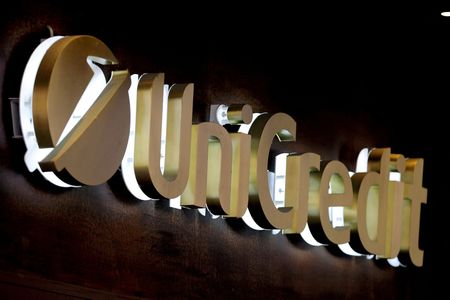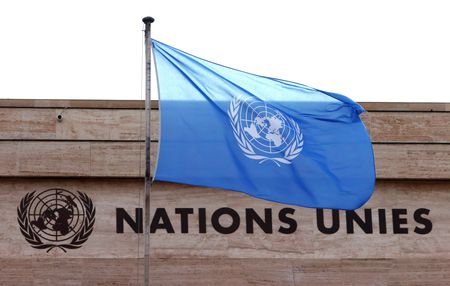By Giuseppe Fonte and Valentina Za
ROME (Reuters) -Italy is sticking to the conditions imposed on UniCredit’s bid for Banco BPM as it prepares to engage in talks with the bank, two sources close to the matter said, in a case that has drawn scrutiny from the European Commission.
As UniCredit beat expectations with a record quarterly profit on Monday, its Chief Executive Andrea Orcel said the bank would seek clarification regarding the government’s decision on Banco BPM over elements that were “not clear and not intended.”
Failing that, UniCredit will decide on its own how to interpret the conditions and whether to pursue the deal.
Rome’s decision may be hard to defend in court, other people with knowledge of the process said separately, but a lawsuit would escalate UniCredit’s clash with the government.
Asking not to be named, the first two sources said on Monday Rome would engage with UniCredit as requested by the bank, but that is part of a process designed to allow the government to monitor the timely implementation of the conditions imposed. A lack of compliance can lead to fines.
UniCredit had previously said that demands including ceasing activities in Russia within nine months and keeping a certain loan-to-deposit ratio could be harmful and it could not take a final decision on the bid.
Discussions set to take place involve technical staff, such as legal experts, on both sides. Economy Minister Giancarlo Giorgetti has no current plans to meet Orcel, one of the sources said.
Italy has used ‘golden powers’ which allow it to block, or set conditions, on foreign and domestic corporate takeovers in strategic sectors, including energy, telecommunications and banking.
The government said it was protecting the country’s strategic interest by avoiding “even the slightest risk” of aiding Russia’s economy where UniCredit operates.
Rome’s use of such rules for UniCredit-BPM has prompted Brussels to seek clarification, raising the prospect of an infringement procedure because EU rules make the European Central Bank solely responsible for bank mergers.
“The Commission has requested more information on this case,” Olof Gill, the EU Commission spokesperson for financial services, told a press briefing on Monday.
“Restrictions to the fundamental freedoms are only permitted if they are proportionate and based on legitimate public interests and, most important, as they do not breach EU law,” he added.
Giorgetti on Saturday defended the government’s right to vet banking deals, saying member states and not the EU Commission are in charge of national security.
(Reporting by Giuseppe Fonte and Valentina ZaEditing by Keith Weir)










